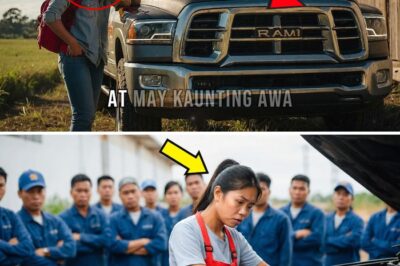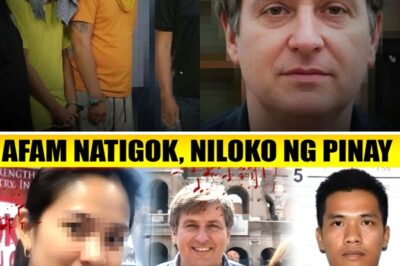
A political firestorm of unprecedented intensity is tearing through the Philippine Congress, threatening to boil over into a full-blown crisis of public trust. At the center of the tempest are two men: one, a relentless congressman sounding a chilling alarm, and the other, an exiled lawmaker accused of orchestrating one of the most audacious corruption schemes in recent history.
Navotas City Representative Toby Tiangco has drawn a line in the sand, issuing a stark warning of “public revolt” if former Ako Bicol Representative Elizaldy “Zaldy” Co is not immediately compelled to return to the Philippines and face the mountain of allegations against him.
Co, who until recently was the powerful chairman of the House appropriations committee, has fled the country and resigned from his post, citing “grave and imminent” threats to his life. But for Tiangco and a growing chorus of public critics, this move is nothing more than the desperate act of a guilty man.
“Resignation is not accountability,” Tiangco declared, capturing the nation’s simmering frustration. “By resigning and hiding abroad instead of answering the allegations, he is not just insulting our institutions, he is insulting the Filipino people.”
The accusations paint a sordid picture of systematic graft. Tiangco, in a formal ethics complaint filed in late September, accuses Co of “betrayal of public trust” and “masterminding, tolerating, and deliberately allowing last-minute insertions and realignments” into the 2025 national budget. Tiangco didn’t mince words, labeling the resulting budget as “the most scandalous, corrupt, and highly irregular” he has ever seen.
The allegations are not just abstract figures. They are tied to billions in public funds, specifically for flood control projects, many of which are now under scrutiny. The core of the complaint alleges a massive conflict of interest involving Sunwest Inc., a construction firm founded by Co, which has reportedly bagged over P86 billion in government contracts since 2016.
But the scandal truly exploded into the public consciousness with testimonies that sound more like a Hollywood crime thriller than a legislative proceeding.
During a stunning hearing of the Senate Blue Ribbon Committee, former engineers from the Department of Public Works and Highways (DPWH) provided bombshell testimony. Brice Hernandez, a former assistant engineer, claimed under oath that he personally participated in delivering a staggering P1 billion in cash to Co’s penthouse apartment in Taguig.
Hernandez detailed an operation of shocking audacity, claiming the cash—alleged kickbacks from project contractors—was packed into more than 20 separate suitcases, each containing P50 million. The deliveries, he testified, required multiple vans and personnel. Another witness, former DPWH engineer Henry Alcantara, backed up the claims, testifying that Co allegedly received kickbacks ranging from 20 to 25 percent from various infrastructure projects.
As these accusations ignited a media frenzy, Zaldy Co was nowhere to be found.
It was revealed that Co had been absent since the start of the 20th Congress on July 28, 2025. He had been granted a travel clearance for “medical reasons,” but according to Tiangco’s ethics complaint, he never submitted the required medical certificates to substantiate his extended absence, leaving his colleagues and the public in the dark.
As the scandal deepened, House Speaker Faustino “Bojie” Dy III took decisive action. On September 18, Dy officially revoked Co’s travel clearance, notifying him that his presence was required “in the paramount interest of the public and due to the existence of pressing national matters.” Co was given a 10-day deadline to return home.
The nation watched and waited. The deadline came and went. Zaldy Co did not appear.
Instead, on September 29, Co released a letter from an undisclosed location abroad. It was not a travel itinerary; it was a letter of “irrevocable resignation.” In it, Co denied all allegations, claiming he was the victim of a political witch hunt and a “denial of due process.” He insisted his life, and the lives of his family, were under “grave and imminent threat,” making his return impossible.
The move was immediately denounced by Tiangco as a “tacit admission of guilt.” He argued that an innocent man would return to clear his name, not abandon his post and hide behind unsubstantiated claims of threats. The resignation, rather than quelling the fire, only fanned the flames of public outrage.
The controversy has now escalated into a tense, multi-branch standoff. The Department of Justice (DOJ) has formally requested a “blue notice” from Interpol, an international alert to locate and gather information on Co’s whereabouts. Malacañang, the presidential palace, has publicly called on Co to return and prove his innocence, stating that his resignation does not absolve him of accountability.
In the latest escalation, Rep. Tiangco has openly accused the Department of Foreign Affairs (DFA) of “lawyering” for Co by refusing to cancel his passport. Tiangco argues that the right to travel is not absolute and that the DFA has the power to revoke the passport of a fugitive from justice.
The DFA promptly fired back, asserting that it cannot unilaterally cancel a citizen’s passport without a specific court order. To do so, the department stated, would be a violation of the constitutional guarantee of due process.
This impasse leaves the public in a state of frustrated limbo. While government agencies debate jurisdiction and procedure, the man accused of stealing billions in public money remains at large. His empty seat in Congress serves as a stark symbol of an accountability crisis.
Youth groups like the Samahan ng Progresibong Kabataan (SPARK) have taken to the streets, protesting outside the headquarters of Co’s Sunwest Group, posting mock “seizure orders” and demanding he be brought back to face the investigations.
This is no longer just a political squabble. It has become a test of the nation’s will. Tiangco’s warning of a “public revolt” is not just rhetoric; it is a reflection of a “roaring outcry” from a populace tired of corruption and impunity. The question on everyone’s mind is no longer just “Is he guilty?” but “Will he ever face a courtroom?” The answer will determine not only the fate of one man, but the very integrity of the institutions he swore to serve.
News
Janitress na Itinakwil ng Pamilya ng Boyfriend Noon, Ginulat ang Lahat Nang Magpakilala Bilang CEO sa Kanilang Family Reunion!
Hindi habang buhay ay nasa ilalim tayo. May mga pagkakataon na ang mga taong inaapakan at minamaliit noon ay sila…
ANG MEKANIKONG NAKABISIKLETA: PAANO PINAHIYA NG ISANG DALAGA ANG 10 ESPESYALISTA AT PINALUHOD ANG ISANG BILYONARYO SA PAGPAPAKUMBABA
Sa ilalim ng nakapapasong init ng araw sa Uberlandia, Brazil, isang eksena ang umagaw sa atensyon ng marami—isang tagpo na…
DAYUHANG NAGHANAP NG PAG-IBIG SA CEBU, SINAPIT ANG MALAGIM NA WAKAS SA KAMAY NG ONLINE SYNDICATE
Sa mundo ng teknolohiya, tila napakadali na lamang maghanap ng koneksyon. Isang click, isang chat, at maaari ka nang makatagpo…
RETIRED SECRET AGENT, Naging Tricycle Driver Para sa Pamilya, Niligtas ang Bilyunaryang CEO Mula sa Kapahamakan at Binago ang Takbo ng Korapsyon sa Kumpanya!
Sa gitna ng mausok, maingay, at masikip na eskinita ng Tondo, may isang anino na tahimik na namumuhay. Si Elias…
Magsasaka, Ginipit ng Milyonarya: “Bigyan Mo Ako ng Anak o Ipapahabol Kita sa Aso” – Ang Kwento ng Pagbangon ni Noelito
Sa isang liblib na baryo sa San Isidro, kung saan ang hamog ng umaga ay humahalik pa sa mga dahon…
Batang Taga-Bundok, Hinamak sa Bangko Dahil sa Lumang Damit—Natahimik ang Lahat Nang Makita ang ₱100 Milyon sa Kanyang Account!
Sa mata ng marami, ang tagumpay ay nasusukat sa kintab ng sapatos, ganda ng damit, at garbo ng pamumuhay. Madalas,…
End of content
No more pages to load












